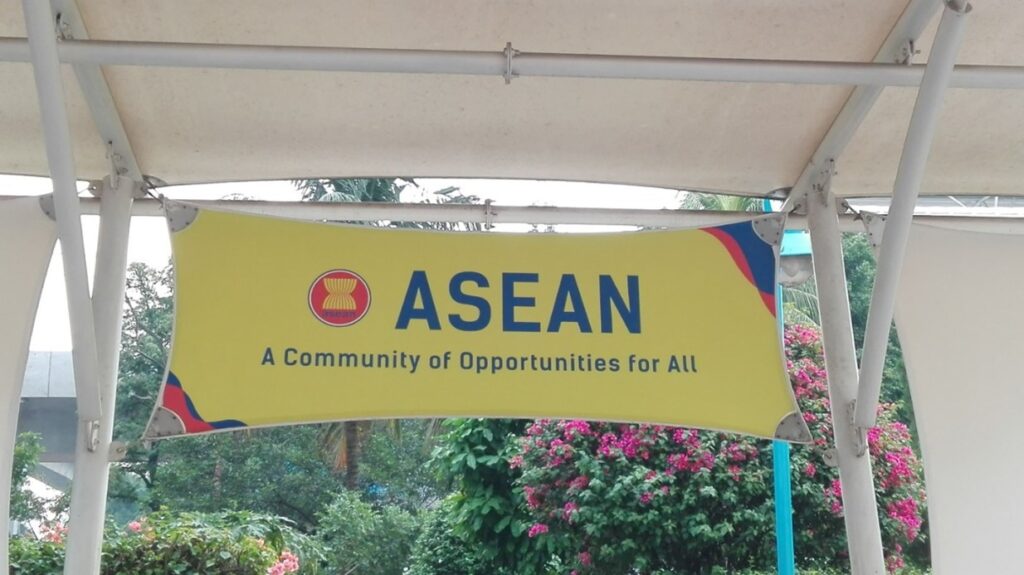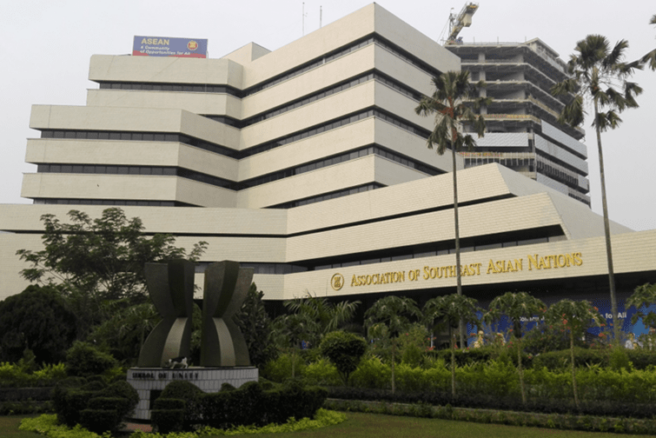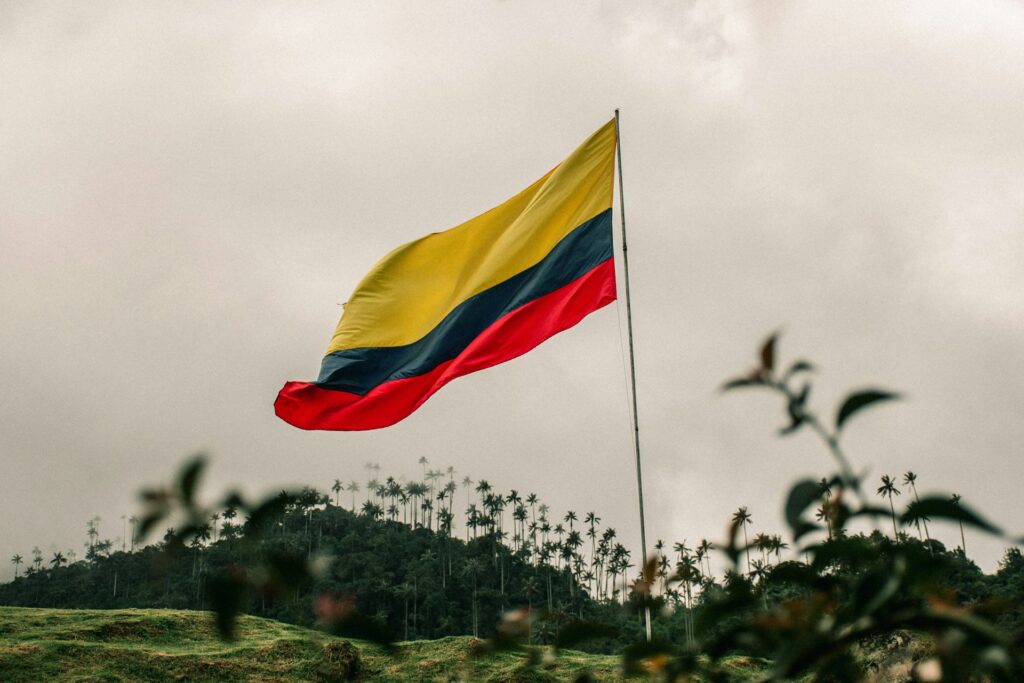Indonesia holds the leadership of ASEAN in 2023. So far, the parameters from the view of effects from climate emergency are proper, but the challenge is always in orchestrating mechanism to actions.
After holding the presidency of Group of Twenty (G20) in 2022, Indonesia now holds the ASEAN chairmanship in 2023. ASEAN is an acronym meaning the Association of South East Asian Nations, a regional organization of ten countries situated in Southeast Asian region. The Indonesian President Joko Widodo, known colloquially as Jokowi, said in his speech during the closing ceremony of ASEAN Summit 2022 (minutes 19:45-20:15), that “the ASEAN must become a robust, inclusive, and sustainable economic growth…[in which] ASEAN capacity must also be strengthened to respond to the challenges of the next twenty years”.
This is when ASEAN collective action is needed, especially in tackling the effects of climate change is one of Southeast Asia’s most vulnerable region. Even the Indonesia’s capital, Jakarta, is reported to be sinking with already 40% of the city below sea level. Jakarta floods constantly, and seawall protections are expensive.
Climate action is seriously needed, and one idea is planting mangroves to save the coastal areas, like those around Jakarta. These measures have remained mostly ceremonial – introduced with highly publicity, as happened at the G20 event, but with little practical significance as mangrove destruction and deforestation continues to happen throughout the country, from Sumatra to Sulawesi, usually due to lack of citizen awareness, lack of knowledge of mangrove importance and ownership of public mangrove.
With these practical problems at home, what does Indonesia plan to bring into the forefront as ASEAN chair in 2023 and what does it say about ASEAN multilateralism?
ASEAN and its Community Vision 2025
Indonesia is one of the five founding nations of ASEAN, alongside Malaysia, the Philippines, Singapore, and Thailand. Now, almost every country in Southeast Asia, except the newest, East Timor, is a member of ASEAN. Established on 8 August 1967, ASEAN is a low profile regional organization and has a limited role in shaping the political and security environment, by promoting of regional peace and stability through historically informal deliberation style of the golf course. The ASEAN secretariat is also located in Jakarta.
After fifty five years (1967–2022), ASEAN’s position is still central in Asia Pacific regionalism. It has a pluralistic membership and promotes cooperation between its members, but its values, notably its “fundamental principle of non-intervention” and consensus resulted in weak institutional structure. Another observer also pointed to major weaknesses of ASEAN in “prioritizing national rather than regional interests first, weak leadership, ineffective bureaucratic structure and uses Western capitalist approach”.
ASEAN members are proud of ASEAN as it is, despite its weaknesses, arguing that perhaps these are in fact its strengths.
Many critics have further emphasized ASEAN’s ineffectiveness, always comparing it to the European Union/EU to advocate for a more defined common identity or regional integration. However, ASEAN as an institution has never been interested in becoming a Southeast Asian version of the EU, although the EU’s effectiveness has had certain appeal.
ASEAN members are proud of ASEAN as it is, despite its weaknesses, arguing that perhaps these are in fact its strengths. ASEAN’s neutrality is also considered valuable initiatives to improve “regional multilateral security dialogue”, for example, ASEAN had tried to solve the South China Sea dispute although unsuccessfully at the face of the great powers in the region, namely the United States and China. Indeed the problems is the region has become even more polarised great powers rivalry.
It seems like ASEAN member states are mostly satisfied with simply belonging to a loose, larger community which rotates its leadership among itself. Thus, despite its many critics, one could argue that as an institution serving its members, the ASEAN thrives.
ASEAN as “men in suits”
Research on media coverage in Southeast Asia has also shown that ASEAN activities are defined by meeting of “men in suits”: the agenda lacks human interest and prioritizes economics interests instead. Therefore, it is not surprising that participation in high-profile meetings, global events or organizations, which emphasize economics, is also reflected in the policy documents and ministerial publications regarding ASEAN.
I have also confirmed this in my own research on Indonesian bureaucrats closely associated with ASEAN activities: meeting participation indeed showed as “men in suits” pictures in the media, although now some women were also seen. Economic issues were also prominently visible in the negotiations, showing that meetings were more like moments of bargaining, weighing financial benefit and costs of all tasks and investments.
The 2023 ASEAN under Indonesian chairmanship has not been an exception: the economy has been once more emphasized as the central focus: an epicentrum of (economic) growth, building “ASEAN that is resilient, secure, and responsive to its citizens”.
Indeed, ASEAN has adopted a vision embodying great ambition for transforming the regional economy by 2025 into a highly integrated and cohesive economy with four main characteristics. First, the ASEAN vision calls for a single market and production base. Second, it calls for a highly competitive economic region. Third, it calls for equitable economic development, which means development based equity and growth inclusivity. Finally, fourth, it calls for full integration into the global economy with all the Member States collectively identified as ASEAN.
At best, sustainability is used as camouflage for economic development. For example, documents on “green energy” can still involve coal and fossil fuel companies.
Such a multifaceted vision is unlikely to be fulfilled, or if the economic plan is aimed toward industrialization, only big industrial countries, such as Indonesia, Malaysia, Singapore, Thailand and Vietnam are likely to follow. The least developed state members (or LDCs), such as Cambodia, Lao, Myanmar and Timor-Leste are likely not included in such economic discussions. Consequently, human rights issues in Myanmar or Timor Leste are likely to have less priority.
Important transnational issues in ASEAN, such as gender equality, human rights and environmental protection and combatting climate change are also less important, as seen that these topics are “buried” under the ASEAN’s socio-cultural community pillar with little to no practical implementation planned. In fact, the United Nations’ Sustainable Development Goals (SDG) implementation strategy remains committed to business as usual. At best, sustainability is used as camouflage for economic development. For example, documents on “green energy” can still involve coal and fossil fuel companies.
The lack of development with a human face seems tragic, especially if we consider how the ASEAN Community Vision 2025, enacted in 2015, envisioned “an integrated, peaceful and stable community….to realise a rules-based, people-oriented, people-centred ASEAN Community”. Point number 15 was to realize “One Vision, One Identity, One Community” but ASEAN member states are too diverse in geographical size, economic power, social and cultural variance to realize this. Thus, as usual, very aspirational taglines along the lines of “ASEAN a community of opportunities for all” remain exactly that – aspirational, or forever “work in progress”.

This is only one example of many ASEAN statements on community and people, that vowed to have great vision and mission, but with limited interaction with the public at large. In short, aside from the economic goals, it seems unclear how well this and previous ASEAN community visions or roadmaps have been realized, if indeed at all. Furthermore, these commitments were unknown and remained insignificant to the greater population. This disconnect emphasizes the earlier point of ASEAN being defined as a forum for “men in suits”, with a lot of bureaucratic work being done, but only the economic dimension of it given any serious thought.
Environment vocabularies with ASEAN economic logic
While the elites are busy drafting documents including “climate action”, “zero emission” and “biodiversity loss” at ASEAN, citizens at large, notably farmers and fisheries in Indonesia, are worried about day-to-day issues, such as how the dry season limits their access to water irrigation; how to plant crops in uncertain rainy seasons, or how to purify river water now polluted due to mining waste.
Solutions, when presented, seem technocratic. Mangroves are still removed, and local bureucrats react to flooding by constructing barriers or seawalls. While much could be accomplished by simply leaving the mangroves alone as flood measures, instead the emphasis is on building, because that engages the economy.
Tackling climate crisis impacts, such as flooding, drought and land-slides, are still not seen as actual sustainability issues, but as technocratic management of natural disasters.
With Indonesia and ASEAN logic on economics, climate change issues are seen as new opportunities for new investment, financing and business. The government focuses more on having roadmaps and written plans or reports on the circular economy, which emphasizes an economic model involving all products and materials to be reused, remanufactured, recycled and recovered (p. 12), than actually implementing it.
A sincerely drafted circular economy roadmap would be important, because it would also include environmental concerns and real longer-term sustainability issues, which also impact the general public. Tackling climate crisis impacts, such as flooding, drought and land-slides, are still not seen as actual sustainability issues, but as technocratic management of natural disasters.
As such, expression of “sustainable (something)…” and “green (anything)…” can be found in the stated programs in many recent government publications, with little acknowledgment of the role of or impact to the public. Clearly, the parameters of needing to act are understood correctly, but the challenge is always in orchestrating mechanisms that become realized as actions.
The importance of remaining hopeful
What do these say about multilateralism from Southeast Asia, or ASEAN, notably from Indonesia? Many policymakers in Indonesia are still locked into “sectoral” issues, or ministerial silos. Action on climate crisis needs collaboration and partnership, and while these are encouraged and stated explicitly as goals, the implementation of collaboration is still hard to achieve. This is partially, if not mostly due to the hierarchical nature of Southeast Asian societies, where elites control policies and rarely listen, inequality is still rampant and national policy has centralized power that can overrule provincial or local policy levels.
No wonder climate change and sustainability issues still revolve around awareness, building trust and capacity building programs. Education is needed as is time for the society to embrace sustainable behaviour and culture. A lot of good ideas can move from the bottom-up, not only top-down.
Action on climate crisis needs collaboration and partnership, and while these are encouraged and stated explicitly as goals, the implementation of collaboration is still hard to achieve.
Of course, it is easier to say than to do, and indeed we should do more. Engaging with academic scholars on development studies, I have learned that above all else multilateralism must bring hope – also within development studies itself. When we have hope and actively advocate for hope, we can, in turn, hope to connect, to interact, to communicate with people. Only then, multilateralism discussions of any transnational challenges, whether climate change, human rights, peace and security, will be more meaningful and lead to realizable solutions.
Aspirations are good and have their role in policy, but multilateral engagement can lead aspiration into positive action. Seeing that happen generates hope, and that has its own positive momentum.
Ratih D. Adiputri is a postdoc researcher at the Department of History and Ethnology, University of Jyväskylä, working for the project on UN legitimacy and transnational challenges, funded by the Kone Foundation.
Photo credits: Ratih D. Adiputri
Featured image: ASEAN secretariat building in Jakarta




